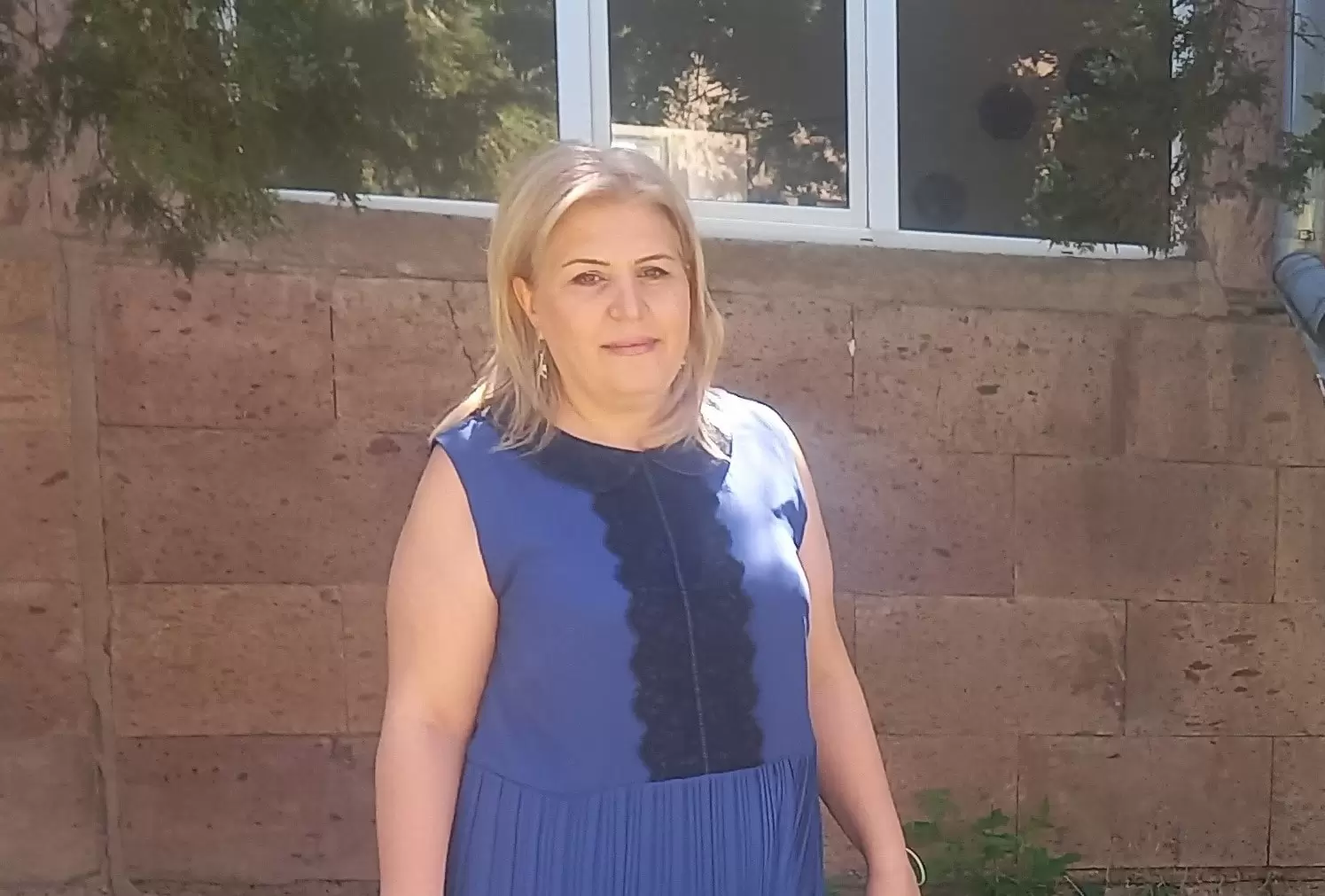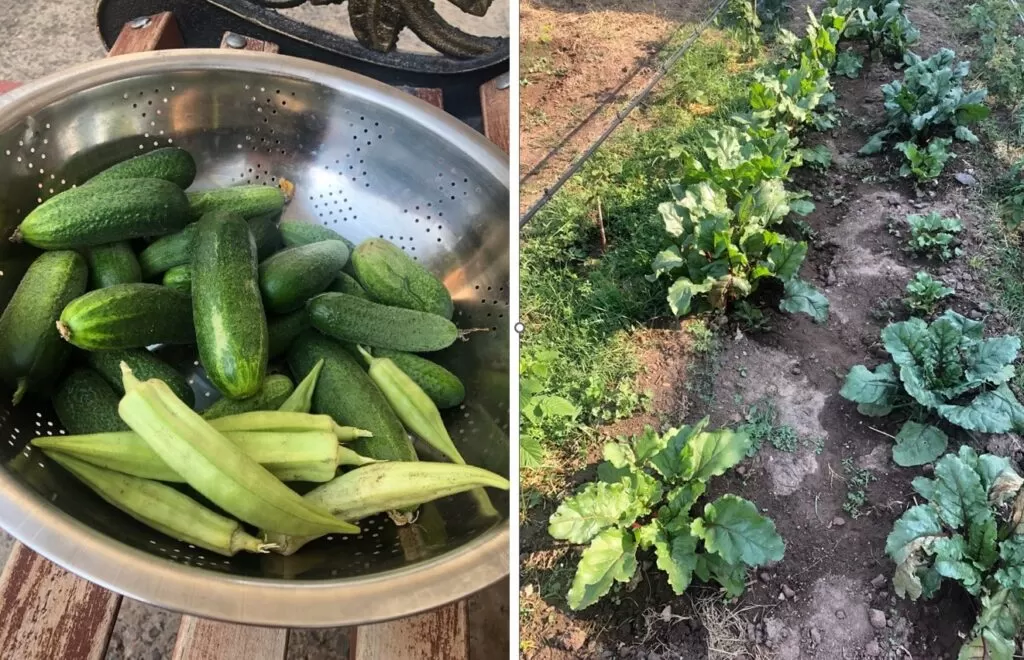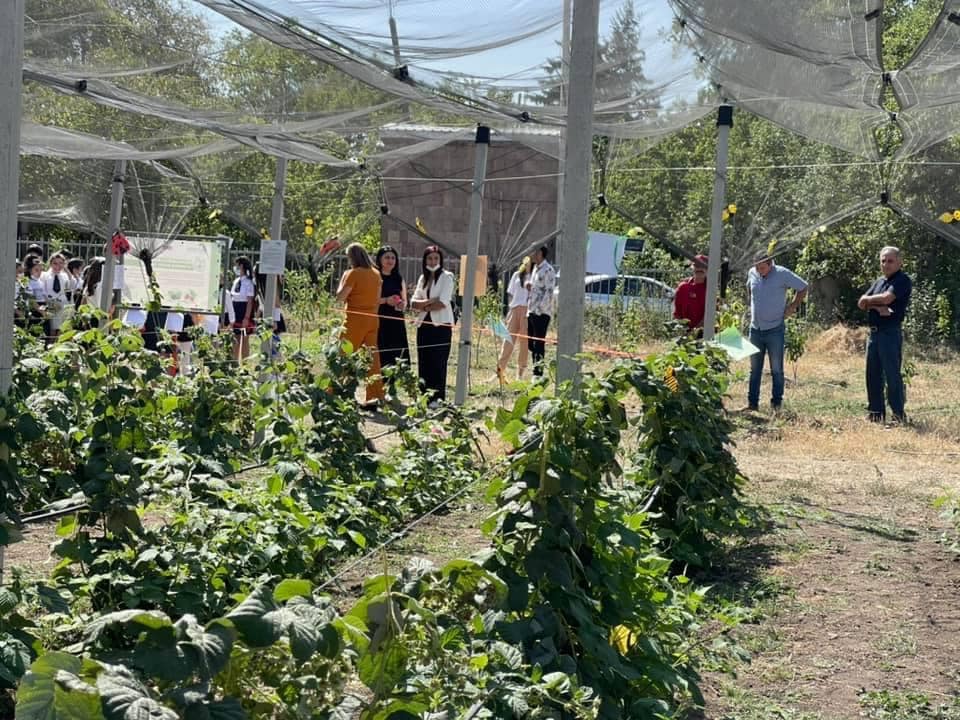
The intensive garden next to the secondary school of Balahovit community of Kotayk Marz is the place that unites the entire student body and teaching staff of the educational institution around innovative ideas of agricultural management. Created by the initiative of director Lilit Misakyan and with the support of the UN World Food Program (WFP), this garden gives students the opportunity not only to directly participate in the cultivation of agricultural products, to acquire the skills of growing crops in modern ways, and to get acquainted with the entire production process, but also to see with their own eyes all the advantages of green agriculture.

According to the director, the first harvest of the intensive garden - vegetables / cucumbers, tomatoes, broccoli, okra, beetroot / was received in 2021, and this year mainly raspberries and blackberries are cultivated, which, like vegetables, are ecologically pure agricultural products. Students learn how to properly and competently cultivate soil to produce organic food. Bio-humus, obtained from Californian red worms, provided to the school by the World Food Program is used instead of the previously used pesticides and fertilizers.

Everyone is satisfied with the results of the cultivation and the obtained harvest, and the income received from the sale of the first harvest, 70 thousand drams, was used to replenish the school library with new literature. The "Young Naturalist's Club" is also a part of the cheerful daily life of the school, where the students apply the knowledge they have acquired about natural science and green agriculture not only during the cultivation of the garden, but also to change the culture in the community. Children understand very well the advantages of ecologically pure food, they distinguish it from natural products sold in shopping centers, and naturally, they prefer food grown by themselves, transferring this aspiration to the family.

The innovative approaches and technologies used in the school gardens are not only educational, but also exciting and motivating in choosing a future profession. Lilit Misakyan is full of hope that many of her students, armed with rich horticultural knowledge, can join the ranks of the students of the National Agrarian University of Armenia and link their future life with agriculture.

“The process of creating an intensive garden not only taught to understand the language of the land, but also educated the children, their parents and the community with the knowledge of modern technologies, which are necessary to develop clean, green and intensive agriculture in Armenia. Do you know what was especially gratifying? The elderly people of the village were constantly watching our work from beyond the school fence and admiring how we turned the uncultivated and arid land into a green garden and flower-bed with our efforts,” says Lilit Misakyan.

Full text in Armenian
The article was prepared with the support of the EU-GAIA project within the framework of the “Women in Green Agriculture” campaign, which aims to popularize the successful experience of women in the development of green agriculture in Armenia and to contribute to the expansion of women's participation in creating a competitive and efficient agriculture based on green technologies and science.

This publication was produced with the financial support of the European Union and the Austrian Development Cooperation. Its contents are the sole responsibility of the author and do not necessarily reflect the views of the European Union and the Austrian Development Agency.
© 2023 Austrian Development Agency. All rights reserved.
Licensed to the European Union under conditions.
About EU-GAIA project
The EU Green Agriculture Initiative (EU-GAIA) is currently the largest agricultural project in Armenia, funded by the European Union (EU) and co-financed by the Austrian Development Cooperation (ADC) ). The project is implemented by the Austrian Development Agency (ADA) and the United Nations Development Program (UNDP). The project government counterpart is the RA Ministry of Economy. The Project is aimed at facilitating the development of sustainable, inclusive, innovative and market-oriented agribusinesses․